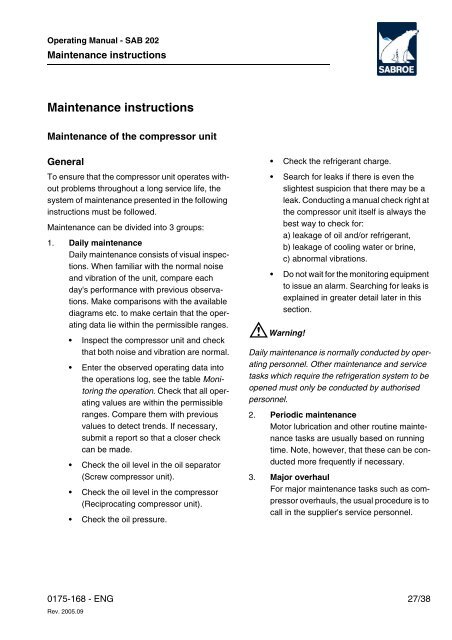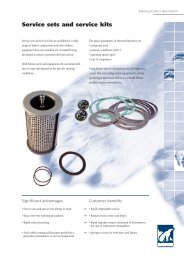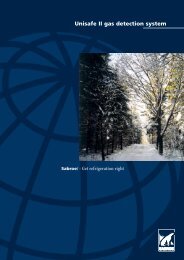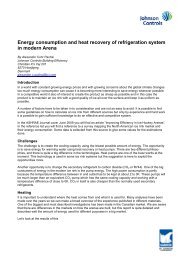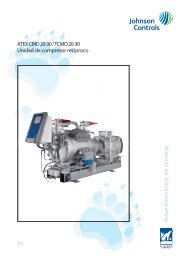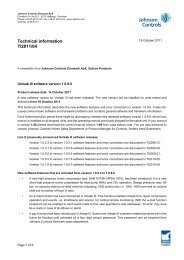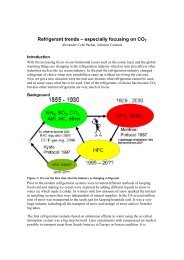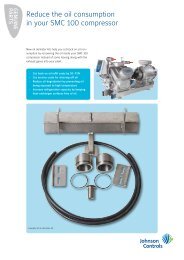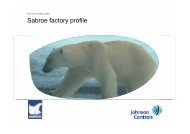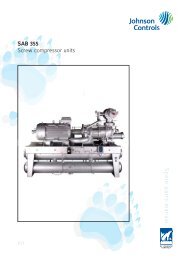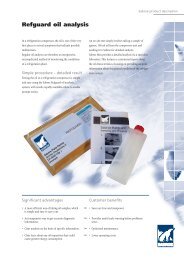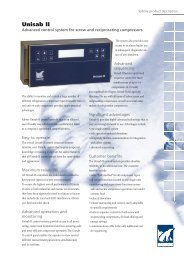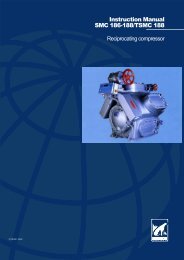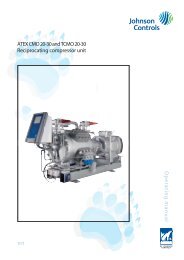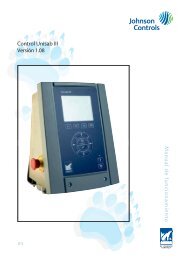Operating manual SAB 202
Operating manual SAB 202
Operating manual SAB 202
Create successful ePaper yourself
Turn your PDF publications into a flip-book with our unique Google optimized e-Paper software.
<strong>Operating</strong> Manual - <strong>SAB</strong> <strong>202</strong><br />
Maintenance instructions<br />
Maintenance instructions<br />
Maintenance of the compressor unit<br />
General<br />
To ensure that the compressor unit operates without<br />
problems throughout a long service life, the<br />
system of maintenance presented in the following<br />
instructions must be followed.<br />
Maintenance can be divided into 3 groups:<br />
1. Daily maintenance<br />
Daily maintenance consists of visual inspections.<br />
When familiar with the normal noise<br />
and vibration of the unit, compare each<br />
day's performance with previous observations.<br />
Make comparisons with the available<br />
diagrams etc. to make certain that the operating<br />
data lie within the permissible ranges.<br />
• Inspect the compressor unit and check<br />
that both noise and vibration are normal.<br />
• Enter the observed operating data into<br />
the operations log, see the table Monitoring<br />
the operation. Check that all operating<br />
values are within the permissible<br />
ranges. Compare them with previous<br />
values to detect trends. If necessary,<br />
submit a report so that a closer check<br />
can be made.<br />
• Check the oil level in the oil separator<br />
(Screw compressor unit).<br />
• Check the oil level in the compressor<br />
(Reciprocating compressor unit).<br />
• Check the oil pressure.<br />
• Check the refrigerant charge.<br />
• Search for leaks if there is even the<br />
slightest suspicion that there may be a<br />
leak. Conducting a <strong>manual</strong> check right at<br />
the compressor unit itself is always the<br />
best way to check for:<br />
a) leakage of oil and/or refrigerant,<br />
b) leakage of cooling water or brine,<br />
c) abnormal vibrations.<br />
• Do not wait for the monitoring equipment<br />
to issue an alarm. Searching for leaks is<br />
explained in greater detail later in this<br />
section.<br />
WWarning!<br />
Daily maintenance is normally conducted by operating<br />
personnel. Other maintenance and service<br />
tasks which require the refrigeration system to be<br />
opened must only be conducted by authorised<br />
personnel.<br />
2. Periodic maintenance<br />
Motor lubrication and other routine maintenance<br />
tasks are usually based on running<br />
time. Note, however, that these can be conducted<br />
more frequently if necessary.<br />
3. Major overhaul<br />
For major maintenance tasks such as compressor<br />
overhauls, the usual procedure is to<br />
call in the supplier's service personnel.<br />
0175-168 - ENG<br />
Rev. 2005.09<br />
27/38


